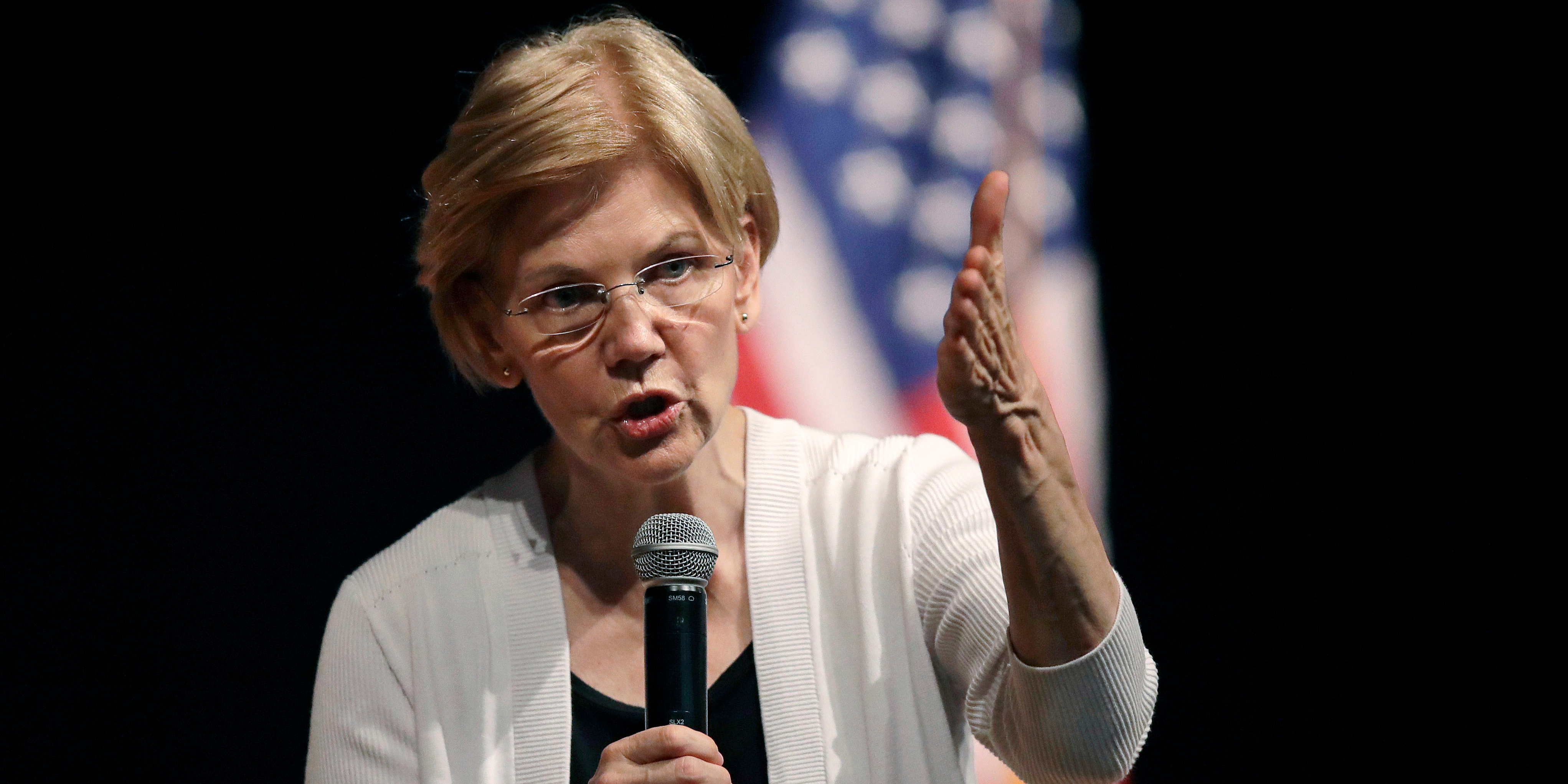- Facebook refused to run an ad on its social network from the US presidential hopeful Sen. Elizabeth Warren because it said the ad used its logo.
- Facebook subsequently reversed course and unblocked it, but the incident highlights the company’s extraordinary power to regulate online speech.
- The left-wing Democratic politician then blasted Facebook in a tweet, calling it a “censor.”
Facebook banned an ad by the US presidential hopeful Sen. Elizabeth Warren that called for it and other big tech companies to be broken up, saying the ad violated its rules, before changing course and allowing it to remain up.
Politico reported on Monday that the Silicon Valley social-networking giant had blocked ads by the left-wing Democratic politician that touted her plan to take regulatory action to split up Facebook, Amazon, and Google if she were elected president, citing their “vast power over our economy and our democracy.”
A Facebook representative told the news outlet that Facebook “removed the ads because they violated our policies against use of our corporate logo” but that it would restore them “in the interest of allowing robust debate.” Facebook did not immediately respond to Business Insider’s request for comment.
Warren’s ad criticized the three tech firms, saying “it’s time to break up these big companies so they don’t have so much power over everyone else.” It included a 1-1/2-minute video highlighting news stories that it said showed anticompetitive behavior from Facebook, Google, and Amazon, and that briefly included a stylized version of Facebook’s logo to represent the company. (The ad is viewable in full in Facebook’s political Ad Archive.)
Facebook's ad policies restrict how advertisers can use Facebook's logos and brand names, in an attempt to avoid misleading ads or ones that could suggest Facebook is endorsing the advertiser. It's this rule that Facebook says Warren's campaign violated.
The incident was swiftly rectified, but it served to illustrate the extraordinary level of power Facebook has to regulate online discourse - and how criticism of the company, if not framed carefully, can inadvertently run afoul of its rules.
Warren subsequently responded on Twitter, tweeting: "Curious why I think FB has too much power? Let's start with their ability to shut down a debate over whether FB has too much power. Thanks for restoring my posts. But I want a social media marketplace that isn't dominated by a single censor. #BreakUpBigTech"
Curious why I think FB has too much power? Let's start with their ability to shut down a debate over whether FB has too much power. Thanks for restoring my posts. But I want a social media marketplace that isn't dominated by a single censor. #BreakUpBigTech https://t.co/UPS6dozOxn
— Elizabeth Warren (@ewarren) March 11, 2019
This isn't the first time critics of Facebook have fallen foul of its checks.
The investigative-reporting outlet Reveal pointed out on Twitter on Monday that it had previously been blocked from running ads about one of its stories on Facebook's business practices around kids' in-game purchases and that Facebook "only approved the ad after we reached out to their comms team."
Do you work at Facebook? Got a tip? Contact this reporter via Signal or WhatsApp at +1 (650) 636-6268 using a non-work phone, email at [email protected], Telegram or WeChat at robaeprice, or Twitter DM at @robaeprice. (PR pitches by email only please.) You can also contact Business Insider securely via SecureDrop.

